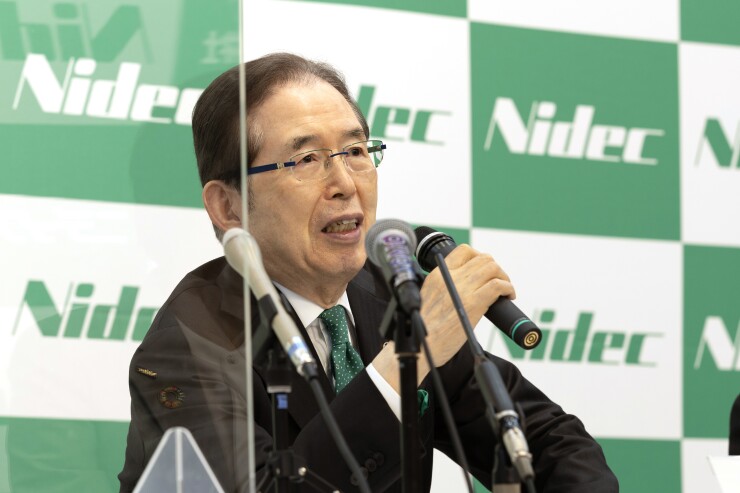Nidec Corp. has discovered more suspected cases of improper bookkeeping, including some involving a Swiss subsidiary, adding to a scandal that's threatening the listing of the once-celebrated Japanese auto gear maker.
The world's top maker of mini motors set up an external probe this year after finding accounting irregularities at two subsidiaries. On Friday, it said it unearthed new problems: its car inverter business may have for years underreported customs duties on second-hand goods exported to China, and a Swiss unit may have exported products without completing the required paperwork.
Auditor PwC Japan was unable to obtain enough evidence to form an opinion on the Kyoto-based company's finances for the fiscal year ended March, according to Nidec's annual securities report, submitted after a three-month delay.
Governance at Nidec, whose inverters and motors are found in cars, robots, home appliances and data centers around the world, is under scrutiny along with founder Shigenobu Nagamori's tight grip on the company before he stepped down as chief executive officer last year.
Earlier this month, Nidec commissioned an external investigation into the possible involvement of senior executives in multiple cases of improper accounting. The news sent shares in the maker of servo and precision motors tumbling. The company's stock price is down nearly 8% this year, compared with a 14% gain in the Topix.
Under Tokyo Stock Exchange rules, any company found to have falsified statements can be labeled as a "security on alert" and face delisting if the problems are not addressed within a year. In the past, that label has been slapped onto Toshiba Corp. and Olympus Corp., although both avoided delisting.
Nagamori at times publicly criticized executives when they failed to deliver results in the face of intensifying competition in China or sluggish demand for PC components. In 2022, Nagamori expressed his disappointment in Jun Seki, whom he'd installed as his successor and CEO the prior year, during a news conference announcing Seki's
In June, Nidec said a unit in Italy misreported the country of origin for some of its motors and may have skirted customs duties.
The company postponed the submission of its securities report for the year to March, warning that it may take "considerable time" to get auditors to sign off. Japanese companies are required to submit their annual report within three months of the end of the fiscal year.
Earlier this month, the company flagged that a Chinese affiliate may have improperly booked a ¥200 million ($1.3 million) supplier rebate. Nidec said it found multiple documents suggesting that senior executives were involved in some of the accounting issues.






